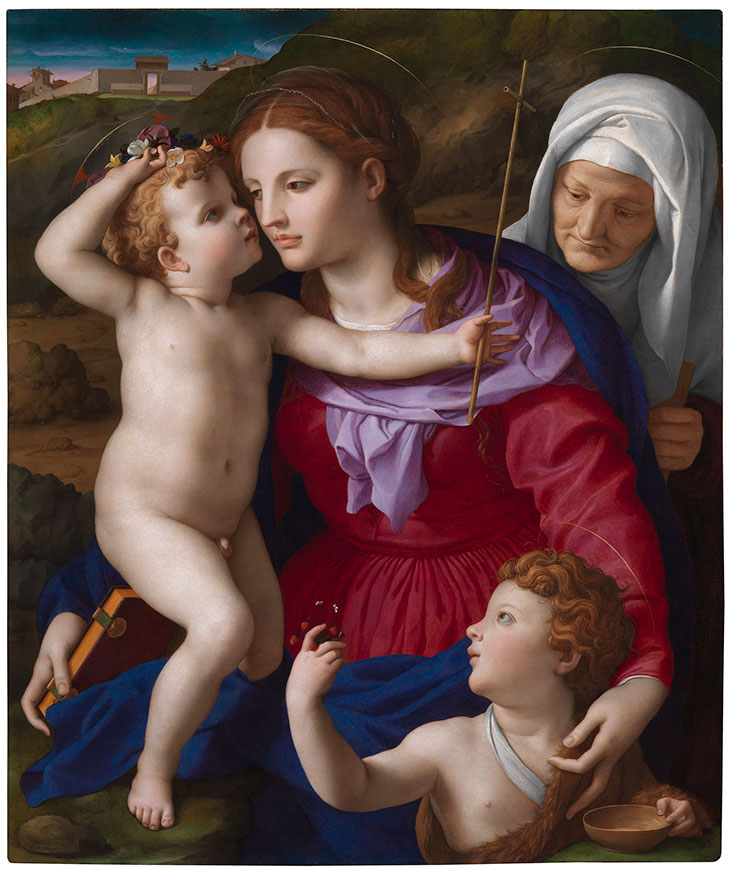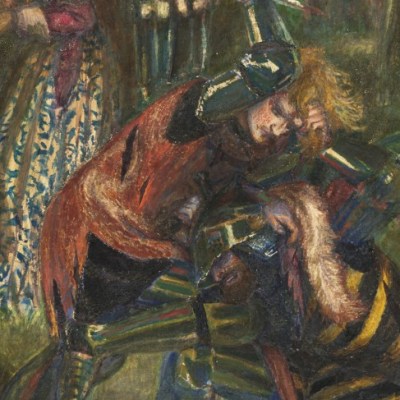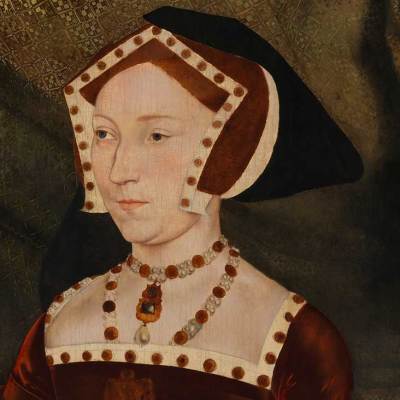A round-up of the best works of art to enter public collections recently
Berkeley Art Museum and Pacific Film Archive
Eli Leon collection of quilts by African-American artists
Acquired over three decades, the late scholar Eli Leon’s collection of 3,000 quilts by some 400 African-American artists is likely the largest of its kind. It is already making an impact at the UC Berkeley Art Museum and Pacific Film Archive, to which it was bequeathed, with 500 works by Rosie Lee Tompkins – a close friend of Leon – forming the basis for a major retrospective opening in February 2020.
Untitled (1996), Rosie Lee Tompkins; quilted by Irene Bankhead. Photo: Sharon Risedorph

Crocker Art Museum, Sacramento
A Bacchanal in a Landscape (1645), Herman van Swanevelt
Dwarfed by the rural Italian landscape that serves as their backdrop, figures laze beside a frolicking nymph who dances to the beat of a satyr’s tambourine. This vision of mythological merry-making by Herman van Swanevelt, a Dutch artist, is an example of the classicising style of landscape that he brought with him to France from Italy, where he had worked before settling in Paris in 1643. It joins the artist’s A Satyr Family (1639), a drawing acquired by the museum’s founder E.B. Crocker some 150 years ago.
A Bacchanal in a Landscape (1645), Herman van Swanevelt. Crocker Art Museum, Sacramento

J. Paul Getty Museum, Los Angeles
Virgin and Child with Saint Elizabeth and Saint John the Baptist (c. 1540–45), Agnolo Bronzino
Once incorrectly attributed to Andrea del Sarto, Bronzino’s Virgin and Child with St Elizabeth and St John the Baptist has remained in private collections until now. Depicting its subjects with vivid colours, crisp delineation and a focus on their musculature, this masterwork of Florentine mannerism now enters the collection of the J. Paul Getty Museum. There is another version of this composition at the National Gallery in London.
Virgin and Child with St Elizabeth and St John the Baptist (c. 1540–45), Agnolo Bronzino. J. Paul Getty Museum, Los Angeles

Hunterian Art Gallery, Glasgow
Phillip A. Bruno collection
Works by primarily American artists, including David Levine, Leroy Lamis, William Dole and Red Grooms, are among the 70 that have been donated to the Hunterian Art Museum by the retired New York art dealer Phillip A. Bruno, who now lives in Glasgow. The gift marks the occasion of Bruno’s 90th birthday. A selection of the works opened in mid October with a second survey scheduled for 2020.
Portrait of Francis Bacon (1999), Red Grooms. Photo: © ARS, NY and DACS, London 2019

Morgan Library & Museum, New York
Jayne Wrightsman collection of 18th-century manuscripts and bindings
The late collector and philanthropist Jayne Wrightsman has bequeathed her considerable collection of French 18th-century manuscripts and book bindings – 10 watercolours, 19 manuscripts and 149 printed books – to the Morgan Library in New York in honour of friend and fellow philanthropist Annette de la Renta. The collection features bindings attributed to the workshops of Luc-Antoine Boyet, Nicolas-Denis Derome and Antoine-Michel Padeloup, whose sumptuous creations offer an insight into the socio-political significance of bookbinding during the ancien régime.
Binding ‘à la Montgolfière’ for Marie Antoinette (1782), Barthélemy Imbert. Photo: Janny Chiu, 2019

Museum of Fine Arts, Boston
Joel Wayne collection of hand-drawn postcards
Well known in the world of postcard collecting, Joel Wayne is particularly attracted to hand-drawn cards for the way in which they represent both what is popular and personal. A collection of some 130,000 postcards can be found at the Museum of Fine Arts, Boston. Wayne has expanded these holdings with nearly 1,600 hand-drawn examples spanning the late 19th to the mid 20th century, from cheery celebrations of public holidays to moving depictions of life in the trenches during the First World War.
Owl by Moonlight (early 20th century). Museum of Fine Arts, Boston

Museum of London
Samuel Pepys’s silver plate
Though Samuel Pepys’s diary is best known for its rich evocation of 17th-century London life, and its invaluable accounts of the plague and the Great Fire of London in 1666, its more quotidian chapters reveal a private passion for collecting silver. The recent identification of Pepys’s coat of arms on a trencher plate from around 1681/82, complete with scratch marks from a knife and fork, has resulted in its acquisition by the Museum of London, where it is on display in the War, Plague and Fire gallery.
Silver trencher plate (1681/82), workshop of Mary King in Foster Lane. Photo: © Museum of London



